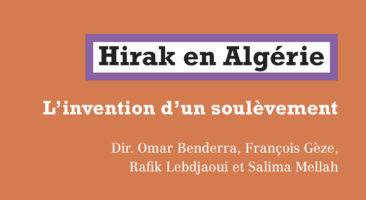Algeria tries to allay Ramadan food price fears
AFP, 30 august 2008
ALGIERS — The Algerian government has pledged to keep food prices under control during the Muslim holy month of Ramadan amid security concerns following a spate of deadly attacks that killed more than 50 people.
Religious Affairs Minister Bouabdellah Ghlamallah warned against speculation and reminded the public that hoarding foodstuffs in order to manipulate prices was « forbidden in Islam. »
According to the Algerian press, however, the prices of many products have already soared. The price of tomatoes — an essential ingredient in one of the main dishes served during Ramadan — had quadrupled in two weeks, while the price of poultry has climbed by 50 percent, reports said.
But Commerce Minister Hachemi Djaaboub said he wanted to reassure citizens that « all food products, whether local or imported, are available in abundance and they will stay that way during the month of Ramadan. »
Djaaboub said the government had placed 120,000 tonnes of potatoes in storage following a good harvest and that this would ensure a steady supply at reasonable prices during the fasting month.
Strong recent mutton production of more than three million animals had led to a five percent fall in meat prices compared to 2007, added Djaaboub.
The government also expected a ten percent fall in the price of poultry due to the removal of a 17 percent tax as a result of a law introduced in August.
Staple foods such as bread, milk and semolina are subsidised in Algeria by the state which has spent 2.5 billion dollars in 2008 to try to keep prices stable.
Secretary General of General Union of Algerian Traders and Artisans (UGCAA) Salah Souilah said that « any increase in prices during Ramadan would be unjustified » and called for tough penalties for shopkeepers who flouted the rules.
Everything was available in the markets, he said, but shortages of sugar and oil were expected due to the increased Ramadan demand for cakes and sweets.
Cevital, Algeria’s main oil and sugar producer, has announced a reduction in prices for Ramadan and promised to ensure the availability for the entire month.
In addition the government will distribute some 1.5 million food baskets to the most impoverished families, said National Solidarity Minister Djamel Ould Abbes.
Each basket, worth around 4,900 dinars (73 dollars, 50 euros), would include 20 kilograms (44 pounds) each of flour and semolina as well as coffee, sugar and oil.
Meanwhile extra security measures were in place in cities across the country, especially at official buildings, and extensive police road blocks had also been set up.
Three attacks — two car bomb assaults and a suicide bombing — in eastern Algeria in one week in August claimed more than 50 lives.
Al-Qaeda in the Islamic Maghreb claimed responsibility for the attacks in an audio message broadcast by Al-Jazeera which also said they had been carried out in response to the deaths « of a group of young mujahideen » killed in an ambush.
The Algerian government has reaffirmed its determination to « combat » terrorism and pursue its policy of national reconciliation, which has seen the pardoning of several Islamists.
Interior Minister Yazid Zerhouni said after one of the latest attacks that « the terrorists should know that the only way for them is to give themselves up. »
The wave of deadly attacks, following December 2007 attacks that killed 41, has caused international concern, partly because of Algeria’s importance as a supplier of natural gas.

